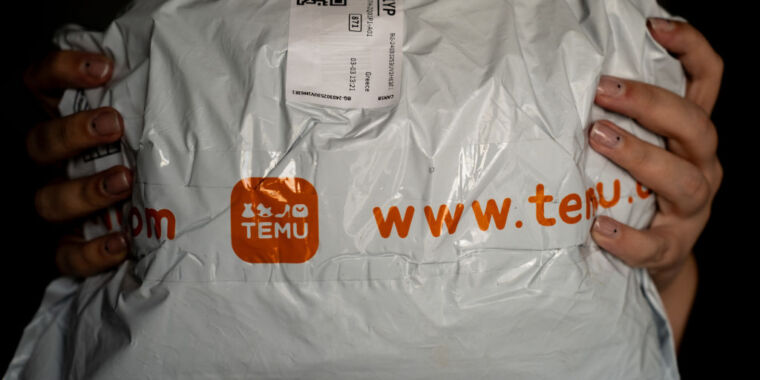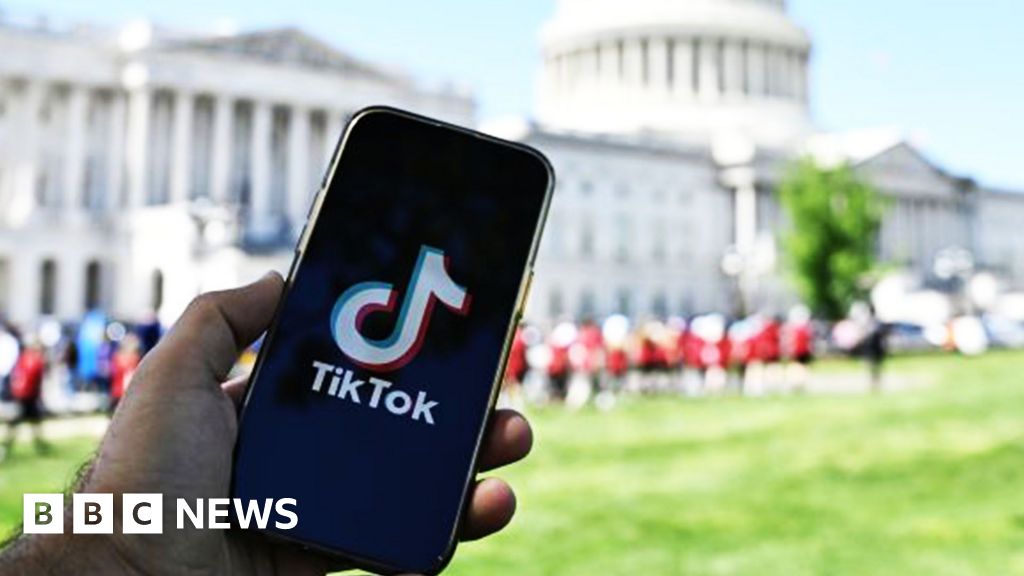- 126 Posts
- 38 Comments

 25·2 days ago
25·2 days agoAnd the next whataboutism! What a waste of time.

 10·2 days ago
10·2 days agoYeah, these are the ‘tankies’ who got banned on Reddit, right? I guess it takes time until they get a minority, but it’s good that the community grows steadily.

 35·2 days ago
35·2 days agoOne thing that’s obvious here on Lemmy is that whataboutism works only in one direction. If an article is critical of China, Russia, Iran, or other dictatorships, you’d read, “But about U.S./EU/the West”. But there are tons of articles here critical of Western countries, and it’s accepted. Why is this? Just wumaos?

 2·5 days ago
2·5 days agoIt raises some good points. It’s also said that there is ‘nothing people can do’ about surveillance. For those interested, there is a good documentary what happens if and when someone tries to do somethong about it:
Total Trust is an eye-opening and deeply disturbing story of surveillance technology, abuse of power and (self-)censorship that confronts us with what can happen when our privacy is ignored. Through the haunting stories of people in China who have been monitored, intimidated and even tortured, the film tells of the dangers of technology in the hands of unbridled power. Taking China as a mirror, Total Trust sounds an alarm about the increasing use of surveillance tools around the world – even by democratic governments like those in Europe.
If this is the present, what is our future?

 2·9 days ago
2·9 days agoI suppose that’s the mechanism they’re using to centrally manage the economy, by controlling fund transfers to lower levels of government.
I would agree with this view. The local governments are responsible for the majority of spendings (including pensions, health care), but they can barely raise funds themselves.
The central government has already said that the new debt will be forwarded to the local government, and that it will be ‘off-budget’, meaning the money goes to LGFVs. The future will tell us how this ends up, but the risks are high imo given the country’s debt burden is so much higher than in most other countries as you suggested.

 6·9 days ago
6·9 days agoThe real change in retail pricing might be discrimination pricing (or ‘surveillance pricing’ as it is now called sometimes). Simply speaking, it uses personal data to personalize prices not just for each customer, but also for each customer depending on actual circumstances such as day time, weather, an individual’s pay day, and other data, collected through apps, loyalty cards, …
As one article says, there is One Person One Price:
"If I literally tell you, the price of a six-pack is $1.99, and then I tell someone else the price of a six-pack for them is $3.99, this would be deemed very unfair if there was too much transparency on it,” [University of Chicago economists Jean-Pierre] Dubé said. “But if instead I say, the price of a six-pack is $3.99 for everyone, and that’s fair. But then I give you a coupon for $2 off [through your app] but I don’t give the coupon to the other person, somehow that’s not as unfair as if I just targeted a different price.”
The linked article is a very long read but worth everyone’s time. Very insightful.

 12·12 days ago
12·12 days agoI am thinking the same. Must be some sort of Streisand effect :-)

 2·13 days ago
2·13 days agoYeah, and not to forget:
One interviewee admitted to paying for access to a data set. “I bought access to an official archive and altered the data to support my hypotheses.”

 5·15 days ago
5·15 days ago… it’s actually about confidence in asking for more upfront
I think this is a good point. I’m wondering whether one reason why men still earn more than women could be that men negotiate more assertively for themselves than.women do because of gender roles that are deeply ingrained in our society.
It could be that girls are still expected (and brought up) to be accommodating, concerned with the well-being of others, while boys are taught how to.compete and being profit-oriented. Are girls and women still considered to be relationship-oriented from an early age, while boys and men are expected to be assertive?
If so, women may feel more uncomfortable negotiating their salaries forcefully over fears of some sort of ‘social backlash’ in the labour market and in the workplace.
I say ‘could’ and ‘may’ and conclude that I don’t know whether that’s reasonable. I don’t know of any research in this field but I am not an expert on gender studies.
(But, yes, I would also assume that pay gaps exist within male and female groups for similar reasons. Not all women and men are alike.)
Addition: To whom it may concern: Just stumbled upon the Institute for Women’s Policy Research in the U.S., they seem to have a lot of research.

 0·28 days ago
0·28 days agoYou can’t make such a decision based on simple financial calculations, not in the least as there is no way to make reasonable predictions in our current market environments. Ask any investment advisor, and they will tell you to buy your home if you can afford it.
This is off-topic: Why is the NYT accessing the camera when going to the linked article?

 11·1 month ago
11·1 month agoThey have to stop the use of forced labour in China, the U.S. and wherever this bs happens. This “U.S. bad, China bad okay” stance is unbearable.

 14·1 month ago
14·1 month agoThis is related, particularly as the discussion is to a large part around cheap cars:
China: Carmakers Implicated in Uyghur Forced Labor - (February 2024)
China’s electric vehicle battery supply chain shows signs of forced labor, report says - (June 2023)

 4·2 months ago
4·2 months agoProbably, but as the article’s authors say, hate “does not mean rage, anger or general dislike”. It appears to be a different concept.

 4·2 months ago
4·2 months ago“we have these “assets” but we aren’t going to tell you what they are because we don’t have to”
Yes, this is exactly what off-balance sheet, OBS for short, means.
Suppose a company has a line of credit at the bank of, say, 1,000,000 dollars, but the credit line comes with a financial covenant stating that the debt-equity-ratio must not exceed 0.5, meaning that the company’s total debt must not exceed half the company’s equity at any point of time.
Suppose now the company wants to buy a new machine on credit, but the costs for this new asset would violate the covenant rule. So the company founds a subsidiary. The subsidiary would then buy the machine to immediately lease it back to the parent company. As the parent company doesn’t legally own the machine, it is not on its balance sheet, meaning the debt-to-equity ratio is fine, but it can control and use the asset (the machine) as it is the company’s subsidiary’s asset.
The company now pays leasing fees (instead of interest rates, had it bought the machine directly on credit), which, of course, stresses its liquidity (very much as it would be in case of a direct credit).
So OBS assets can technically improve ratios, but they are hard to analyze and assess (but they can deceive shareholders and other stakeholders, including authorities, by conveying a higher solvency and liquidity than they actually have).
Large companies and banks have many opportunities to create such OBS. They often create so-called Special-Purpose Vehicles (SPVs) following a similar approach as in our small example. Banks can also move assets through securitization, leaseback agreements, accounts receivables, derivatives.
Don’t get me wrong, there are good reasons to use this tool, but if and when you overdo it, you may not know yourself what risks your entire business actually bears. It becomes incalculable.
And if then, say, you can’t pay back a small loan because investment A went wrong, then investment B that has initially nothing to do with A may also suffer, which then effects C …
[Edit typo.]

 4·2 months ago
4·2 months agoI had similar thoughts when reading the article. Fees of 3 or even 5 percent should be a joke in 2024.

 1·2 months ago
1·2 months agoAs one user in this thread said, it might be a feature required by the CCP.















Yeah, I was wondering the same, but didn’t want to edit the original title. Maybe there are some details that are new, I don’t know. What the CCP has been doing for a long time now is a shame.